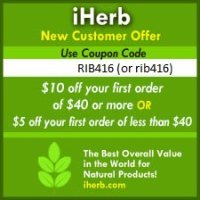
|
|||||||
Tips on Prevention of Strokesby Webmaster, All4NaturalHealth.com There are some basic foundational tips for the prevention of strokes. At the forefront, before you consider trying certain herbs and supplements, is to ensure that you are eating right and living a healthy lifestyle. Indeed, diet, nutrition, and lifestyle are critical factors. Eating more fresh fruits and vegetables, cutting down on saturated fats from meat and other animal food products, exercising regularly and cutting down on stress - this is an excellent start for preventing strokes and for an overall health-promoting protocol. More is described on the rest of this page.
Share YOUR Knowledge and Experiences
or Read Others' Contributions Click here for more pages and articles on Stroke. A note about Tips on Prevention of StrokesIn natural health and healing, we believe in holistic health and healing, as we realize that different parts of the human body are highly interlinked, often beyond Man's understanding. We also believe that the body has the ability to heal itself of any disease, even supposedly incurable diseases. In order to do so, the body needs the support of some basic dietary and lifestyle good health habits, such as a full body detox and a proper understanding and application of nutrition. No matter how remote or unrelated a health condition may seem, these fundamental health steps will greatly magnify the effects and benefits of any of our health-promoting efforts, including the use of specific natural health remedies. Healthy Lifestyle Habits Exercise not only lowers stroke risk, but also improves one's health and vitality. It protects against many other serious diseases, too, and should form a part of any person's health-promoting lifestyle. Keeping healthy weight is also important for the prevention of strokes, as obesity and excess weight have been linked to higher risk of getting an attack. Abdominal fat, in particular, may be more dangerous. Of course, physical activity is useful and important for maintaining healthy weight. Smoking definitely raises stroke risk. In fact, even the inhalation of second-hand smoke has been linked with increased risk of suffering strokes.
Risk Factors There are specific risk factors which increase one's likelihood of getting a stroke. To keep your risk of stroke down, it is necessary to also reduce or get rid of these factors. Firstly, the main risk factor for suffering a stroke is hypertension, or high blood pressure, and that is surely the first thing which must be dealt with in your attempts to prevent ever getting hit by an attack. Click here for more information on high blood pressure. Also, one main underlying cause for the occurrence of strokes is atherosclerosis, a condition whereby the walls of blood vessels in the body thicken or "harden", thereby reducing the cross-sectional area of the passageway available for blood flow. Vital blood supply is thus restricted. The smaller passage also becomes more susceptible to blockage, which often takes place because of the formation of blood clots. It thus makes sense that preventing atherosclerosis helps prevent strokes, too. A healthy diet low in saturated and trans fats, high in fresh fruits and vegetables, low in refined foods, high in natural and whole foods, high in fiber, low in refined salt, etc, as well as healthy lifestyle habits, go a long way in totally preventing this condition. Click here for more information on atherosclerosis. Unhealthy cholesterol profiles raise your stroke of risk, too, so improving it is another important step in the prevention of strokes. In my view, there is nothing better than a good dietary and lifestyle protocol in improving cholesterol levels. Of course, certain herbs and supplements can also help to lower cholesterol, which then helps to prevent atherosclerosis, thereby also helping to prevent the occurrence of strokes. Click here for more information on cholesterol. High levels of homocysteine have been linked to increased risk of strokes, although it is not clear if this is a causative factor, or simply indicative of some other possible risk factor. It has been put forth that the use of folic acid, vitamin B6 and vitamin B12 supplements can help to lower homocysteine levels. In my view, to prevent strokes, one should undertake a holistic dietary and lifestyle protocol, and not rely solely on supplements.
Foods to Avoid in the Prevention of Stroke Saturated fats have been linked with not just strokes, but also heart disease and cancer, and consumption of these fats should thus be cut down on. Again, in today's world, we are eating way too much of such fats, which are found mainly in meat and dairy. Watching your salt intake is another key step in the prevention of stroke attacks. Indeed, studies have linked high salt consumption with elevated stroke risk. Salt raises blood pressure, too, which in turn again raises stroke risk. On the flip side, potassium intake has been associated with reduced risk of strokes. An excellent way of getting enough potassium in your diet is to consume a lot of fresh fruits and vegetables. If you may have high risk of suffering a stroke, you may want to avoid a high intake of iron, as there is some indication that too much of this metal may raise one's likelihood of getting a stroke. The effect of light drinking on one's stroke risk is unclear, with studies being divided. What is very clear, however, is that heavy drinking boosts stroke risk, for it raises blood pressure and also adversely affects the heart.
Foods to Consume More of The consumption of more fruits and vegetables has been shown in studies to protect against strokes. The best effects for the prevention of strokes were obtained with cruciferous vegetables such as broccoli, green leafy vegetables, and citrus fruits. Research also suggests that eating whole grains helps to protect against strokes. Of course, most of us today consume lots of refined grains, which are virtually devoid of fiber and nutrients, and are practically just empty calories. Diets which are low in magnesium have been linked to increased risk of stroke. This is possibly due, in part, to the fact that magnesium helps to reduce elevated blood pressure. However, in this regard, the use of magnesium supplementation has not really been investigated. Thus, if you are thinking of the use of this mineral in the prevention of strokes, it is wise and best to obtain it from your food.
Herbs and Foods which Help to Prevent Strokes It is sometimes not straightforward to categorize a plant as an herb or a food; some herbs, like garlic and ginger, are, after all, used in common everyday recipes. Here are some commonly eaten herbs and foods which are useful for helping in the prevention of strokes. And, these foods not only help in the prevention of stroke, but they come with a host of other health benefits, too.
Useful Herbs and Supplements While nothing beats a healthy diet and lifestyle, there are numerous herbs and supplements which could be useful for helping to prevent strokes. Do note that many of these herbs and supplements work by thinning your blood; this way, they help to prevent ischemic strokes (when blood vessels get blocked, often by blood clots). However, if an hemorrhagic stroke occurs (when blood vessels burst and there is internal bleeding), blood thinners may end up worsening the situation. Therefore, it is a delicate balance, something which you must take note of. Another important point to note is that the majority of strokes, said to be about 80%, are ischemic strokes.
As mentioned earlier on this page, when it comes to the prevention of strokes, there is simply no substitute for an overall healthy diet and lifestyle. The great thing is, good dietary and lifestyle health habits not only help to lower your stroke risk, but also boost your health and wellbeing in many other ways. For more information on this condition, read the other related stroke pages.
Read More: More on Stroke | Natural Health Remedies for Various Ailments and Conditions | Home Page | Site Search
Click here for natural, herbal and homeopathic remedies for strokes.
Click here for more pages and articles on Stroke.
Tweet
Some Related Stroke Pages What is a Stroke - Introduction Common Cause of Stroke - Causes of Strokes Return from this page Diet and Lifestyle to Natural Health Remedies, Natural Health Cures, Organic Remedies & Organic Cures Return from this page Tips on Prevention of Strokes to All 4 Natural Health... attaining good health naturally... Home Page
|
Get Quality Natural Health Supplements at Affordable Prices. $5 or $10 discount for new customers [?] Subscribe To This Site
Tweet |
||||||
|
Site Search
|
|||||||
|
This website's content must not be reproduced or republished without express permission. Site Search The information provided on this website is not meant to diagnose, prevent, treat or cure any disease. It is to be taken as suggestions or educational material and not to be considered professional advice. Copyright© 2007-2014 All4NaturalHealth.com. All Rights Reserved. Home | Links & Resources | Privacy Policy | Disclaimer | Subscribe to E-zine | Site Search | Contact Us Return to top |
|||||||









New! Comments
Have your say about what you just read. Leave a comment in the box below.